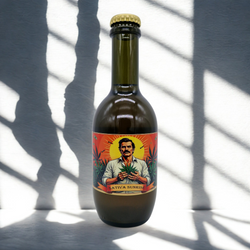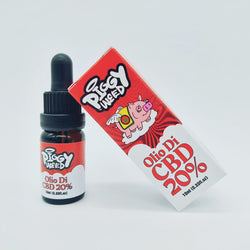CBD, why has a single plant-based molecule become so successful?
CBD is found in Cannabis sativa. It belongs to a class of chemical compounds called cannabinoids.
Discovered in 1941, researchers have concluded that cannabidiol has the ability to interact with the human body’s innate endocannabinoid system (ECS). However, it does not cause psychotropic or intoxicating effects. CBD is found almost exclusively in the cannabis plant. Cannabis is currently the only natural source of CBD, but researchers are finding ways to chemically synthesize CBD.
Let's now explain how CBD works?
CBD works in multiple ways, which is why it has such great potential for humans. The compound interfaces with numerous molecular targets, including receptors in the endocannabinoid system. The ECS is a universal regulator in the human body, helping to manage neurotransmission, bone remodeling, skin health, the immune system, and more. Because cannabis-derived cannabinoids share a similar structure to endocannabinoids, they are able to influence the ECS in similar, yet distinct, ways.
Since CBD hit the rising star bandwagon in 2014, several products have hit the market.
Here are two of the most popular ways to take CBD:
CBD Oil
CBD Oils are Easy, simple and portable, most CBD oils contain a CBD extract suspended in an edible carrier oil, such as olive oil, hemp seed oil or MCT oil. Oils fall into 3 distinct categories:
- Full spectrum
- Broad spectrum
- Isolated
One of the reasons CBD oil is so popular is its versatility. It can be taken sublingually (under the tongue) or orally (ingested with food and drinks).
CBD Capsules
CBD capsules are nothing more than CBD oil encapsulated in a soft gelatin. Each capsule contains a precise amount of CBD, offering greater control when taking cannabidiol.
Risks of Hemp-Derived CBD?
It is often said that CBD has no side effects, but sometimes there can be some small setbacks such as:
- Dry mouth
- Diarrhea
- Poor appetite
- Drowsiness
- Fatigue
It remains clear, however, that even for the World Health Organization (WHO), CBD does not appear to cause harm or make addictive. Furthermore, since it is not a psychotropic, cannabidiol does not represent a risk for people with mental health problems.
In conclusion, CBD has many positive effects but the fact remains that if you take other medications or you do not feel safe, before proceeding with the intake contact your doctor and ask him if the medication you are taking does not interfere with CBD.
Disclaimer: We are not making any medical claims. This blog is written for informational purposes only and is based on research published by external sources on this cannabinoid and its far-reaching effects on human physiology.





